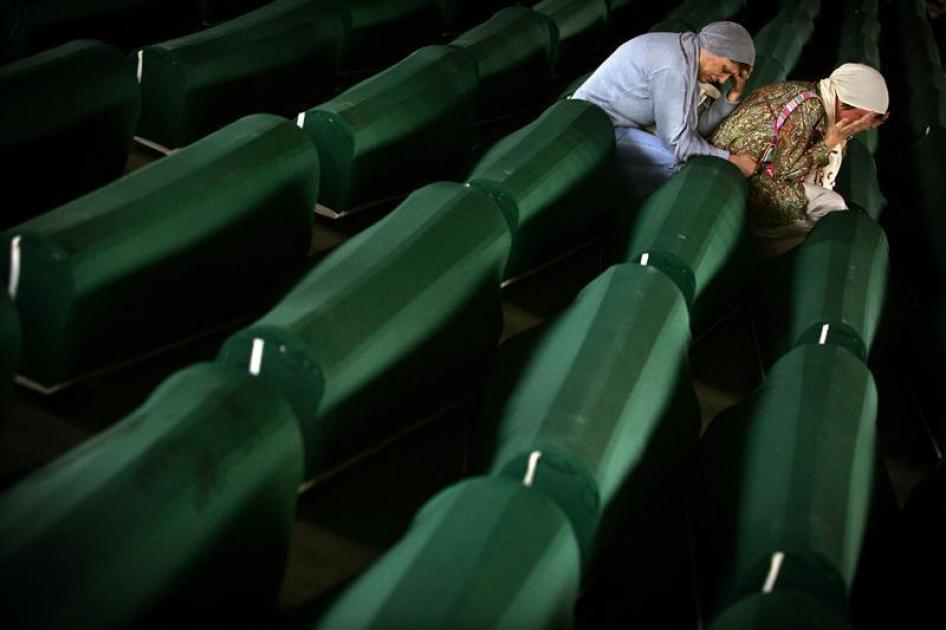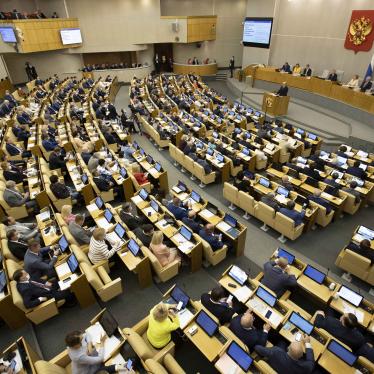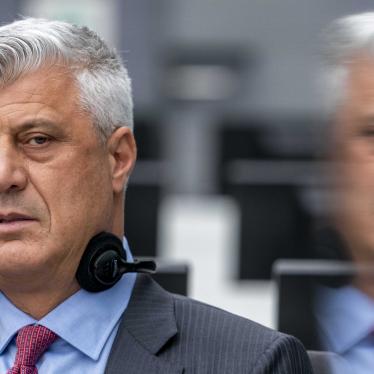It was just a bolt of pink cotton lying on the floor of a school gym but more than 20 years later, it haunts me still – soldiers tore off strips of that cloth, blindfolded dozens of men, trucked them to a nearby field, shot them, and buried all but a handful of survivors in mass graves. Today, the man who presided over the Bosnian Serb Republic as his troops committed mass killings at Srebrenica, was found guilty of genocide and crimes against humanity by the International Criminal Tribunal for the former Yugoslavia and sentenced to 40 years in prison.
|
Dispatches
Dispatches: Justice Catches Karadzic after 21 Years
Your tax deductible gift can help stop human rights violations and save lives around the world.
Region / Country
Most Viewed
-
April 25, 2024
Burkina Faso: Army Massacres 223 Villagers

-
April 24, 2024
EU Parliament Approves Supply Chain Law

-
November 25, 2019
A Dirty Investment

-
April 24, 2024
Iran: Popular Rapper Sentenced to Death for Dissent

-
April 25, 2024
Lebanon: Stepped-Up Repression of Syrians






